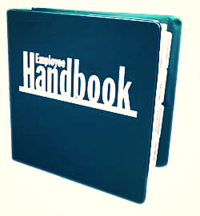Click Here to Access Millionaire Time and Productivity Secrets
Please share this post on Twitter, Facebook, or any of your favorite social media sites. We welcome all comments. Thanks!Contributing Author: Stacie Walker
If you are thinking about hiring employee's to help reduce your workload, then there are some important things to consider.
It's tempting to be the small business owner who wants to let your new employee's work in a less structured environment.
You may allow your employee's to set their own work hours. You may let your employee's borrow a certain amount of cash and then deduct the loan from their payroll.
Before you consider going down this road BEWARE! Your relaxed work environment could be violating state and federal labor laws.
I know it may be your desire to be flexible, kind, and empathetic employer. You are not running a popularity contest, you are running a business.
 You must comply with all standards for employee rights and fair labor standards.
You must comply with all standards for employee rights and fair labor standards.
Always remember that following the correct regulations for overtime, child labor, and minimum wage will help you overcome mistakes and lawsuits.
Image Credit: business-law.lawyers.com
Get on the right foot before you hire your first employee.
Perhaps you are thinking, “Where should I begin?”
There are two things that you can do to make sure you don't suffer the consequences of violating labor laws in the United States.
1.) Get familiar with the labor laws of your state.
2.) Create an employee handbook or employee manual.
Are you familiar with your state and federal labor laws? If you answered no, then it's okay. You aren't alone.
Most entrepreneurs who jump right into a business venture aren't properly educated about labor laws.
Understand Labor Laws Through the Small Business Administration

If you want to continue to build a successful business, you must be aware of the federal and state laws.
The Small Business Administration (SBA) website contains a wealth of information to help you understand the labor laws of your state. They also break down the differences of federal law.
The resources on the SBA website should guide you with easy to understand information to create policies on wages, benefits, safety and health, harrassment and nondiscrimination for your business.
In the article, Settling Is Not the Only Way to Resolve an Employee Lawsuit from the New York Times states:
"You need not do anything wrong to be sued. But when you are facing a lawsuit, it helps to be able to prove you have done everything by the book. This includes posting all labor- and employment-related materials in the workplace that are required by state and federal governments."
Since there are so many different laws for you to keep up with as a business owner, companies like Personnel Concepts provide display posters to help you stay up to date with current safety regulations and labor laws.
Display posters are most beneficial if you have an office outside of the home. This will help reduce the risks of being fined by the government.
Create an Employee Handbook Before Hiring Your First Employee

Perhaps when you
first started your business, you were the only “employee” and did
whatever necessary to make sure your business stayed afloat.
Now your business is growing and you may be thinking about hiring your first official employee.
If you already have an employee, then it may be easy for you to keep track of things without formal documentation.
What happens when you have a handful of employees?
Without formal documentation, do you think everyone will be on the same page when it comes to rules, regulations, and expectations?
Most likely not.
I can provide a hundred different ways an employee handbook can protect your employee's and your small business. There a four that come to mind.
4 Ways an Employee Manual Can Save Your Small Business
1.) Your manual will define what is acceptable in the workplace and what is should be the expected behavior of your employees.
2.) Having a manual can protect you and your business from future litigation.
3.) The employee handbook can clearly define the responsibilities of each employee.
4.) Your employee handbook can have detailed information about keeping your small business information confidential.
It doesn't have to be a 200 page manual, like the handbooks you may have come across in the corporate world.
A simple but efficient route is to invest in an online employee handbook creator for a decent fee.
It can be a two page document with rules, expectations, consequences, and regulations for new your new employee. It also should describe your legal obligations as an employer, and employee rights. You can revise your employee manual when the time is right.
Before you put yourself in an awful situation in the future, it's best to create an employee handbook before you hire your first employee.
In conclusion, I want to be straight with you.
Even though I have provided you with valuable information and resources to help you establish a solid foundation for your small business, I'm NOT an attorney.
After creating your unofficial employee handbook, it's best to get proper assistance from a trusted employment lawyer or human resources consultant.
I know you want a thriving and professional business, so please don't cut corners.
Always invest in the necessary professionals to make sure your small business remains thriving and professional.

